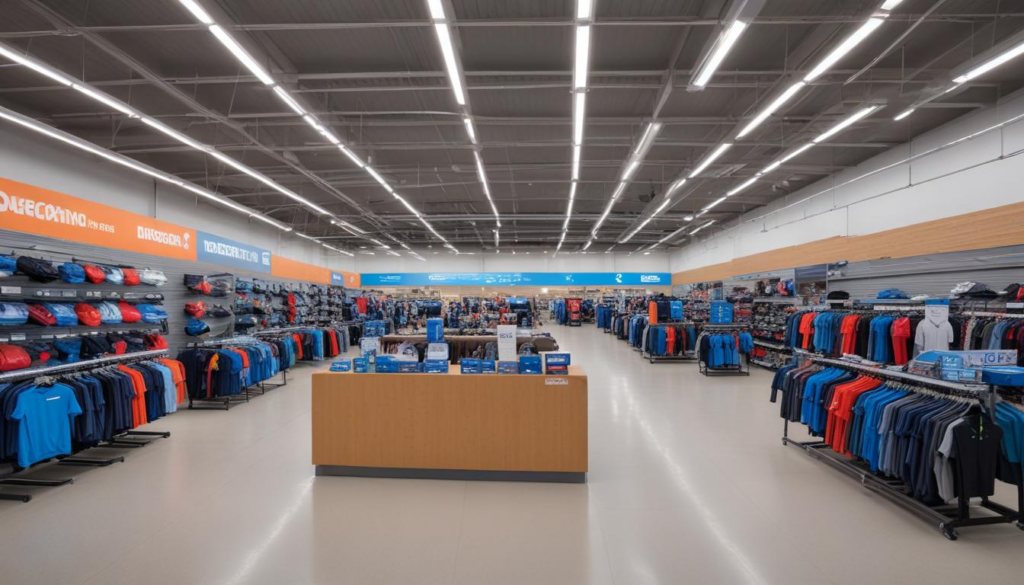The Indian market presents a compelling, yet complex, landscape for sports retail giants like Decathlon. Boasting a young and increasingly health-conscious population, India has witnessed a surge in fitness fads and a growing interest in diverse sporting activities. This burgeoning demand is fuelled by rising disposable incomes and greater awareness of the benefits of an active lifestyle.
However, this potential is tempered by several factors. The market is highly price-sensitive, and competition is fierce, ranging from established domestic players to international brands. Furthermore, infrastructure challenges and logistical complexities can impact supply chain efficiency and overall profitability. Despite these hurdles, the sheer size and growth potential of the Indian market make it an attractive target for Decathlon’s expansion plans.
Decathlon recognises the importance of tailoring its offerings to suit local preferences and price points. The company is actively exploring opportunities to leverage the “Make in India” initiative, aiming to source and manufacture more products locally. This strategy not only reduces costs but also allows Decathlon to better cater to the specific needs and tastes of Indian consumers. The company’s commitment to sustainability and circularity also resonates with an increasingly environmentally aware consumer base.
Growth Strategy Details
Decathlon’s growth strategy in India hinges on a multi-pronged approach. A key element is expanding its physical presence through a mix of large-format stores in metropolitan areas and smaller, more accessible outlets in Tier 2 and Tier 3 cities. This ensures wider reach and caters to diverse customer segments. The company also focuses on strengthening its online presence, recognising the increasing importance of e-commerce in the Indian market. A seamless online-offline experience is crucial to capture the digitally savvy consumer base.
Another vital aspect of Decathlon’s strategy is product localisation. The company is actively investing in research and development to create products specifically designed for the Indian climate, playing conditions, and consumer preferences. By increasing local sourcing through the “Make in India” initiative and manufacturing, Decathlon aims to offer competitive prices while maintaining quality standards. This commitment to localisation demonstrates a deep understanding of the Indian market and its unique requirements.
Beyond product and channel strategies, Decathlon is building strong community engagement through sports events, workshops, and partnerships with local sports clubs and schools. This approach fosters brand loyalty and promotes a sporting culture. Emphasising value-added services such as equipment rentals, repair services, and personalised sports advice further enhances the customer experience. Decathlon’s commitment to circularity, with initiatives like product buy-back and recycling programs, appeals to environmentally conscious consumers and reinforces its brand values within the competitive sports retail landscape.
Challenges And Opportunities
Decathlon’s path in the Indian market, while promising, is paved with both significant challenges and abundant opportunities. One of the major hurdles is navigating the complex regulatory landscape, which can vary significantly from state to state. Obtaining necessary permits and approvals can be time-consuming and bureaucratic, potentially delaying expansion plans. Furthermore, infrastructure limitations, particularly in smaller cities and rural areas, pose logistical difficulties for efficient supply chain management. These challenges demand a robust and adaptable operational strategy.
However, these challenges are counterbalanced by immense opportunities. The increasing adoption of digital technologies across India provides a significant avenue for Decathlon to expand its reach and engage with customers through e-commerce platforms and digital marketing. The growing popularity of fitness fads and sports activities among the younger generation presents a vast, untapped market for sports retail. Decathlon can capitalise on this trend by offering a diverse range of products and services that cater to the evolving needs and preferences of Indian consumers. Moreover, the “Make in India” initiative offers Decathlon the opportunity to establish local manufacturing facilities, reduce costs, and create employment opportunities.
Another opportunity lies in embracing sustainability and circularity. As environmental awareness grows among Indian consumers, Decathlon’s commitment to eco-friendly practices, such as using recycled materials and offering product repair services, can resonate strongly with its target audience. The company can further strengthen its brand image by actively promoting sustainable sporting habits and supporting environmental conservation initiatives. By addressing both the challenges and opportunities strategically, Decathlon can solidify its position as a leading player in the Indian sports retail market and contribute to the growth of the sporting culture in the country.
Competitive Landscape
The Indian sports retail sector is a dynamic arena with a mix of international and domestic players vying for market share. Decathlon faces stiff competition from established Indian brands like Reliance Retail’s Trends, Lifestyle, and Shoppers Stop, which have a strong understanding of local consumer preferences and well-established distribution networks. These retailers often offer a wider range of apparel and footwear brands, catering to diverse fashion sensibilities alongside sporting goods.
International competitors such as Adidas, Nike, and Puma also hold significant positions in the Indian market. They leverage their global brand recognition and premium product offerings to attract a segment of consumers willing to pay a premium for quality and performance. These brands often partner with celebrities and sports personalities to enhance their brand image and appeal to aspirational consumers. Decathlon distinguishes itself through its focus on offering high-quality, affordable sports equipment and apparel across a wide range of sports, targeting a broader demographic.
The rise of e-commerce has further intensified the competitive landscape, with online platforms like Amazon, Flipkart, and Myntra offering a vast selection of sports goods from various brands. Decathlon needs to effectively compete in the digital space by providing a seamless online shopping experience, competitive pricing, and efficient delivery services. The company’s commitment to “make in India” initiative and “circularity” initiatives can further differentiate it from competitors by appealing to environmentally conscious consumers and offering locally relevant products. The key to success in this competitive environment lies in understanding the nuances of the “Indian market”, adapting to evolving consumer preferences, and offering a compelling value proposition that balances quality, affordability, and sustainability.
